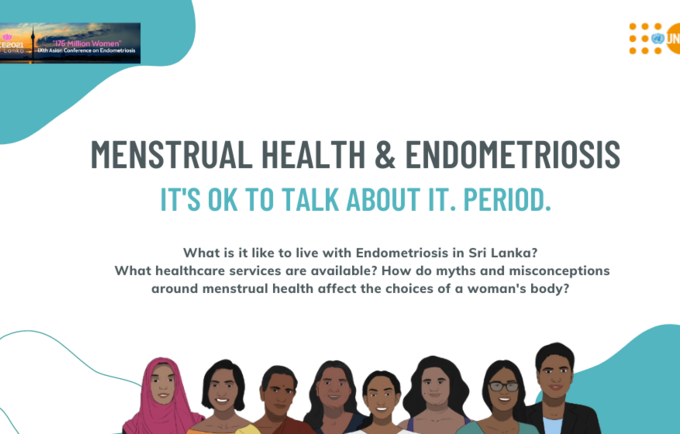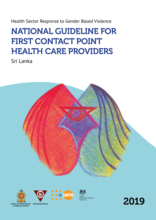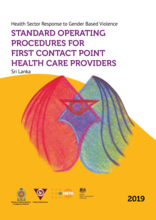COLOMBO, Sri Lanka (05 November 2021): Menstruation is a natural monthly occurrence for the 1.8 billion women and girls of reproductive age across the world. Yet millions are denied the right to manage their monthly menstrual cycle in a dignified, healthy way. Cultural taboos coupled with shame and stigma associated with menstruation make it harder to ensure the sexual and reproductive health needs of women and girls are met. In fact, 66% of girls in Sri Lanka are not even aware of menstruation until its first occurrence (Menstrual Hygiene Management in Schools in South Asia, UNICEF, WaterAID, 2015) and not being able to openly share and discuss the issues they face during menstruation and normalizing period pain, can take a serious toll on a woman’s well-being.
Endometriosis is one such condition that can affect women and girls and can cause extreme pain during menstruation. It also has significant social, public health and economic implications. It can decrease quality of life due to severe pain, fatigue, depression, anxiety, and infertility. So it is important that women and girls are aware of conditions that affect their health and know when and where they can seek help.
To generate this much-needed discussion on endometriosis and the broader sexual and reproductive well-being of women and girls in Sri Lanka, the United Nations Population Fund (UNFPA) in Sri Lanka recently joined hands with the Endometriosis Association of Sri Lanka yet again to organize a panel discussion on “Menstrual health & endometriosis: it’s OK to talk about it. Period”.
Ms Navchaa Suren, UNFPA Representative a.i stated “We need to take action to uphold the sexual and reproductive health rights of women and girls. Addressing endometriosis and creating a dialogue among medical professionals and women and girls to raise awareness about endometriosis is the first step towards empowering women and girls to enhance their quality of life, and overall well-being.”
Congress chair, Professor Hemantha Senanayake stated “Don't accept severe menstrual pain" - menstrual pain that does not go away with simple analgesics might indicate you have an underlying condition such as endometriosis, which is treatable. Ignoring the pain could lead to that underlying condition could have progressed to a more complicated situation by the time you finally decide to seek treatment. So if you have severe menstrual pain, it is prudent to seek medical advice.”
The panel discussion followed the spirit of the Nairobi Summit, highlighting that rights and choices for all are a fundamental part of the 2030 Agenda for Sustainable Development. It focused on the lived experiences from endometriosis survivors and emphasized the importance of sensitizing medical professionals to cater to the sexual and reproductive health needs of women and girls by breaking the stigma around menstruation and reproductive health-related conditions. After all, living with dignity is a human right that should be preserved. So it’s OK to talk about it. Period.
**Ends**



